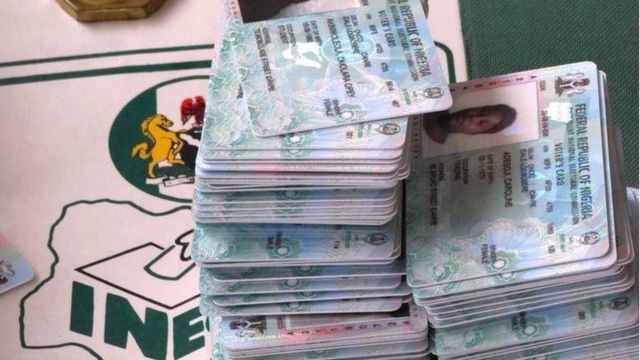
Before the commencement of the ongoing continuous voter registration CVR exercise, available figures from the Independent National Electoral Commission INEC pointed to eighty-four million registered voters in the country in twenty nineteen.
Under the CVR exercise before the twenty nineteen general elections, a total of fourteen point two million Nigerians registered between twenty seventeen and twenty eighteen.
Over time, INEC has worked with these numbers to conduct general and other off-season elections to elect leaders at various levels of governance across states in the country.
By law, INEC has the responsibility to capture eligible voters, especially those who clocked eighteen years after the last voters’ registration exercise.
This, therefore, explains why the commission on June twenty-eight commenced yet another round of voter registration exercises to bring on board more citizens who will be expected to actively participate in electing new leaders during the twenty twenty-three general elections.
Accordingly, the Commission has very tall dreams of capturing at least one hundred and twenty million voters, particularly youths for the twenty twenty-three general elections.
To meet the target, at least thirty-six million new voters will have to be added because as earlier alluded to, the total number of registered voters from twenty seventeen to twenty nineteen stood at eighty-four million.
As a matter of fact, the commission’s latest Continuous Voter Registration CVR update as of May thirtieth, twenty twenty-two suggests that over ten million Nigerians applied to acquire voters’ cards, but only six point fifty four million have successfully completed the registration online and in-person.
Regrettably, this leaves a gap of twenty nine point four million which is a far cry from INEC’s target as it will require massive participation of those within voting age to meet the additional thirty-six million thresholds.
However, the real issue for now is not the turnout of eligible voters to register but non collection by those who have completed the entire process which INEC has pegged at twenty million and still counting.
The huge number according to INEC and other critical stakeholders is capable of changing the tide in the direction of a candidate in an election.
So therefore, Nigerians and youths in particular must at this point remember that making a difference in any election starts with registration and collection of PVCs.
Once these two basic conditions are not met, it will be possible for the electorates to have a say or determine who gets elected into any position of authority just the way it happened in the just concluded Osun Governorship election.
After all, votes and not social media will determine the winners of the twenty twenty-three general elections.
It is therefore incumbent on INEC and political parties to engage better and get more people who have registered to collect their PVCs so that they can participate in the upcoming general elections.
It is also imperative that INEC make the entire process seamless so that more citizens will be encouraged to go for their voter cards. On the part of the media and civil society organisations, they have a duty to complement INEC by launching full-scale campaigns to drive the collection of PVCs to increase massive participation in all elections.
For those that have collected their PVCs, they have to be reminded that it is a precious and valuable piece of document that if properly put to use will change the governance system in Nigeria for good.
To this end, the electorates must resist all forms of inducement from the political class during the twenty twenty-three general elections and choose the right people using their PVCs so that they can improve the standard of living, guarantee security, steady power supply and above all, ensure that education is placed on the right pedestal that will guarantee development.
Write-up: Terfa Awuhe